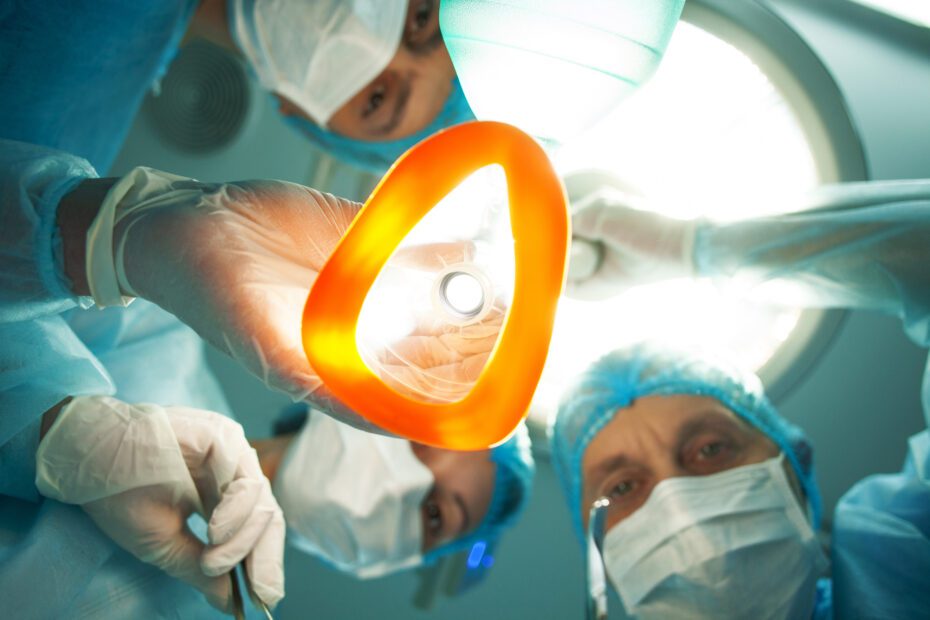Colorectal surgery encompasses a range of surgical procedures aimed at treating conditions affecting the colon, rectum, and anus. This type of surgery is often necessary for various reasons, including cancer, inflammatory bowel disease, diverticulitis, and other gastrointestinal disorders. As you delve into the world of colorectal surgery, it’s essential to grasp the underlying conditions that may necessitate such interventions.
Understanding the anatomy of the colon and rectum, as well as the common diseases that affect these areas, can provide you with a clearer picture of why surgery might be recommended. The surgical techniques employed in colorectal surgery have evolved significantly over the years. Traditional open surgery has largely been supplemented by minimally invasive approaches, including laparoscopic and robotic-assisted surgeries.
These advancements not only reduce recovery times but also minimize scarring and postoperative complications. As you consider your options, it’s crucial to discuss with your healthcare provider the specific type of surgery that may be appropriate for your condition, as well as the potential benefits and risks associated with each approach.
Key Takeaways
- Colorectal surgery is a procedure to treat conditions affecting the colon, rectum, and anus, such as cancer, polyps, and inflammatory bowel disease.
- Preparing for robotic colorectal surgery involves discussing the procedure with the surgeon, understanding the benefits and risks, and arranging for post-operative care.
- Preoperative diet and bowel preparation are essential for a successful colorectal surgery, and may involve dietary restrictions and bowel cleansing to ensure a clear surgical field.
- After colorectal surgery, patients can expect to experience some discomfort, fatigue, and changes in bowel habits, but these symptoms should improve over time.
- Managing pain and discomfort post-surgery may involve medication, physical therapy, and lifestyle modifications to promote healing and recovery.
Preparing for Robotic Colorectal Surgery
Consultation with Your Surgeon
The first step is a thorough consultation with your surgeon. During this meeting, you will discuss your medical history, current medications, and any allergies you may have. This is also an excellent opportunity to ask questions about the procedure, including what to expect on the day of surgery and the recovery process.
Diagnostic Tests
In addition to the preoperative consultation, you may be required to undergo various diagnostic tests. These could include blood tests, imaging studies like CT scans or MRIs, and possibly a colonoscopy. These tests help your healthcare team assess your overall health and determine the best surgical approach for your specific situation.
Physical Preparation
Furthermore, you will likely receive instructions on how to prepare physically for the surgery. This may include dietary restrictions or guidelines on what to do in the days leading up to the procedure. By following these instructions, you can ensure a smooth and successful surgery.
Preoperative Diet and Bowel Preparation
One of the most critical aspects of preparing for colorectal surgery is adhering to a specific preoperative diet and bowel preparation regimen. Your surgeon will likely provide you with detailed instructions on what foods to consume or avoid in the days leading up to your surgery. Generally, a low-fiber diet is recommended to minimize stool bulk and make bowel preparation easier.
This may involve consuming white bread, rice, and lean proteins while avoiding whole grains, fruits, and vegetables. Bowel preparation is another essential step that typically occurs the day before your surgery. This process usually involves taking a prescribed laxative or enema to clear your intestines completely.
While this may seem uncomfortable or inconvenient, it is vital for ensuring that your surgeon has a clear view of the surgical area during the procedure. Following these dietary guidelines and bowel preparation instructions closely will help facilitate a smoother surgical experience and reduce the risk of complications.
Knowing What to Expect After Colorectal Surgery
After undergoing colorectal surgery, it’s natural to have questions about what comes next. The immediate postoperative period is often characterized by monitoring in a recovery room where healthcare professionals will keep a close eye on your vital signs and overall condition. You may experience some grogginess from anesthesia, but this will gradually wear off as you regain consciousness.
It’s important to communicate any discomfort or concerns you may have during this time. As you transition from the recovery room to your hospital room, you will begin to notice changes in your body as it starts to heal. You may have drains or catheters in place to help manage fluids and monitor output.
Your healthcare team will provide guidance on when you can start eating again and what types of foods are appropriate during your initial recovery phase. Understanding these expectations can help alleviate anxiety and prepare you mentally for the journey ahead.
Managing Pain and Discomfort Post-Surgery
Managing pain and discomfort after colorectal surgery is an essential part of your recovery process. Your healthcare team will likely prescribe pain medications to help alleviate any discomfort you may experience following the procedure. It’s important to take these medications as directed and communicate openly with your healthcare providers about your pain levels.
They can adjust your pain management plan if necessary to ensure you are as comfortable as possible. In addition to medication, there are various non-pharmacological methods you can employ to manage pain effectively. Techniques such as deep breathing exercises, gentle movement, and relaxation strategies can help ease discomfort and promote healing.
Engaging in light activities as tolerated can also aid in reducing stiffness and improving circulation, which is vital for recovery. By taking an active role in managing your pain, you can enhance your overall recovery experience.
Rehabilitation and Recovery Process

Benefits of Walking
Walking is often recommended as it helps improve circulation, reduces the risk of blood clots, and promotes bowel function.
Monitoring Your Progress
As you continue to recover, it’s essential to pay attention to your body’s signals. You may experience fluctuations in energy levels or changes in bowel habits as your body adjusts post-surgery. Keeping a journal of your symptoms can be helpful for tracking progress and discussing any concerns with your healthcare provider during follow-up appointments.
Key to Optimal Healing
Remember that recovery is a gradual process; patience and self-care are key components in achieving optimal healing.
Follow-Up Care and Monitoring for Bowel Cancer
Follow-up care after colorectal surgery is vital for monitoring your recovery and ensuring that any underlying conditions are managed effectively. Your healthcare provider will schedule regular appointments to assess your progress and address any concerns that may arise during your recovery journey.
These visits may include physical examinations, blood tests, or imaging studies to monitor for any signs of recurrence if cancer was involved.
In addition to routine follow-ups, it’s essential to remain vigilant about any changes in your health post-surgery. Be proactive in reporting any unusual symptoms such as changes in bowel habits, unexplained weight loss, or persistent abdominal pain. Early detection of potential issues can significantly impact treatment outcomes and overall health.
By staying engaged in your follow-up care, you empower yourself to take charge of your health journey.
Support and Resources for Patients and Caregivers
Navigating the journey through colorectal surgery can be challenging not only for patients but also for caregivers who play a crucial role in providing support during recovery. It’s important to recognize that you don’t have to go through this experience alone; numerous resources are available to assist both patients and their caregivers. Support groups, whether in-person or online, can offer valuable emotional support and practical advice from others who have faced similar challenges.
Additionally, educational resources such as pamphlets, websites, and workshops can provide information about managing post-surgery life effectively. Your healthcare team can also connect you with dietitians or physical therapists who specialize in post-operative care for colorectal patients. By utilizing these resources and building a strong support network, you can enhance your recovery experience and foster resilience during this significant life transition.
If you are interested in learning more about the advancements in surgical technology, check out the article Meet Our New Team Members: The Surgical Robots. This article discusses how surgical robots are revolutionizing the field of surgery and improving patient outcomes. It is a fascinating read that complements the information provided in the article about Preparation for Colorectal Surgery. For more healthcare-related content, visit here.
FAQs
What is colorectal surgery?
Colorectal surgery is a type of surgery that focuses on the treatment of conditions affecting the colon, rectum, and anus. It may be performed to treat conditions such as colorectal cancer, inflammatory bowel disease, diverticulitis, and other disorders of the colon and rectum.
How should I prepare for colorectal surgery?
Preparation for colorectal surgery may include undergoing medical tests, such as blood tests and imaging studies, following a special diet, stopping certain medications, and quitting smoking. Your surgeon will provide specific instructions tailored to your individual needs.
What should I expect during the recovery period after colorectal surgery?
The recovery period after colorectal surgery varies depending on the type of surgery performed and individual factors. Patients may experience pain, fatigue, changes in bowel habits, and dietary restrictions during the initial recovery period. It is important to follow your surgeon’s post-operative instructions and attend follow-up appointments for monitoring and support.
What are the potential risks and complications of colorectal surgery?
Potential risks and complications of colorectal surgery may include infection, bleeding, blood clots, damage to nearby organs, and bowel or urinary problems. Your surgeon will discuss the specific risks and potential complications associated with your surgery and provide information on how to minimize these risks.
How long does it take to recover from colorectal surgery?
The recovery time after colorectal surgery varies depending on the type of surgery performed, the individual’s overall health, and the presence of any complications. In general, it may take several weeks to months to fully recover from colorectal surgery and resume normal activities. Your surgeon will provide guidance on the expected recovery timeline for your specific surgery.
